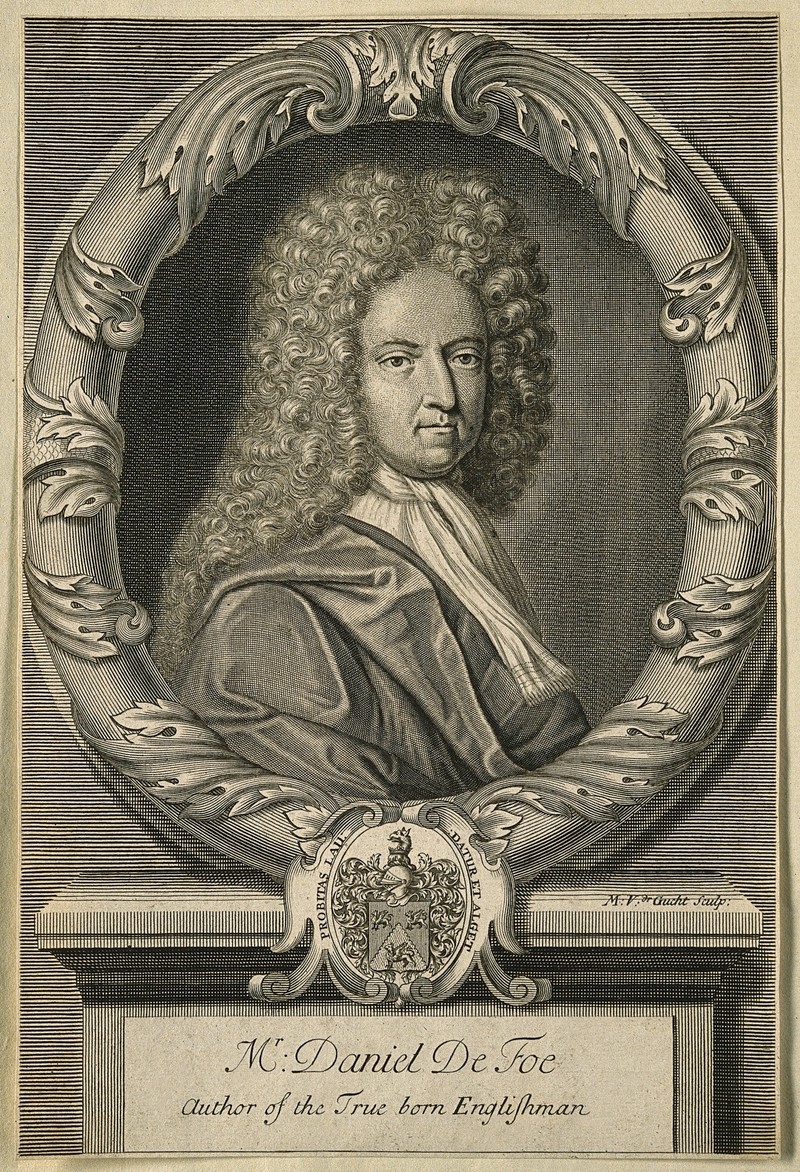In Britain today over 9 million people, nearly a fifth of the population, describe themselves as lonely. Fiction’s most famous castaway, Robinson Crusoe, is Barbara Taylor’s starting point as she explores changing attitudes towards solitude and how the modern idea of loneliness began.
Robinson Crusoe and the morality of solitude
Words by Professor Barbara Tayloraverage reading time 7 minutes
- Article

Throughout recorded history people have suffered from unwanted solitude. “Solitude,” the poet John Donne wrote in 1623 after a period of confinement with serious illness, “is a torment which is not threatened in hell itselfe.” But Donne’s use of ‘solitude’ here, rather than ‘loneliness’, points to an important historical shift.
‘Loneliness’ as we know it today is a modern concept, dating from the 19th century, and the terms in which it is described are very different from the way solitude was understood in earlier centuries. Today lonely people are regarded sympathetically and efforts are made to alleviate their isolation. People who opt for a solitary life, often for religious or creative reasons, are respected for their choice. We take these attitudes for granted, but they differ sharply from the very negative views of solitude that were common in the past.
Asked to name a lonely person from history, many people might choose Robinson Crusoe, the fictional narrator of Daniel Defoe’s novel of 1719. In the three centuries since Crusoe’s appearance, he has become an icon of solitude, his 28-year sojourn on an uninhabited Caribbean island the most influential depiction of loneliness in Western literature. Many writers before Defoe had pondered the solitary life, but none had portrayed it in such vivid detail.
Yet as a tale of solitude, the book holds some surprises. Most of us imagining ourselves in Crusoe’s situation probably reckon we would go mad, and in fact some of the real-life castaways on whom Defoe based his hero did become insane. But not only does Crusoe stay robustly sane, he rarely complains of what we now call loneliness, although his complaints, when they do come, are heart-wrenching.
Many writers before Defoe had pondered the solitary life, but none had portrayed it in such vivid detail.
Witnessing a shipwreck near his island from which none of the crew survive, he breaks into a wail of misery: “Oh that there had been but one or two, nay, or but one soul saved out of this ship… that I might but have had one companion, one fellow-creature, to have spoken to me and to have conversed with!”
The busy entrepreneur
But such moments are rare as he sets himself to building a home, cultivating crops, domesticating wild goats: all that ingenuous busyness that so entranced generations of young adventurers who, as one Georgian reader observed, were “less struck with the hardships of the anchorite’s situation than with the animating exertions which he makes to overcome them”. So successful are these exertions that within a few years Crusoe’s island has become a thriving “little Kingdom” over which he rules with “much content”. So although he is glad, after a quarter-century of aloneness, to acquire a companion (his “faithful savage”, Friday), to a modern reader his pleasure at this seems surprisingly muted.
More surprising still are his repeated assertions that he has been happier in his “Solitary Condition” than in “any other Particular state in the world”. Why is Crusoe so happy in his solitude?
Crusoe’s solitude is suffused with the go-getting spirit of economic entrepreneurialism.
Defoe’s hero is an idealised version of himself in his (singularly unsuccessful) role as a self-made businessman. Crusoe’s extraordinary exertions drive the narrative, with his solitariness serving to highlight his self-reliance and enterprise. Gloating over his crops and goats, Crusoe’s solitude is suffused with the go-getting spirit of economic entrepreneurialism.
Isolated as he is, however, Crusoe is never entirely alone – God is with him. A worldly man, at first he knows nothing of this, but midway through his exile he undergoes a religious awakening and thereafter experiences the joys of Divine companionship. Yet Defoe was an ardent Protestant who, in common with most Protestants, abhorred Catholic religious practices, including monasticism.
Was he accused of endorsing monasticism in ‘Robinson Crusoe’? Possibly; the records don’t tell us. At any rate, a year later, still writing as Crusoe, Defoe set about clarifying his views in an essay that appeared in a retrospect on his island sojourn in 1720, titled ‘Serious Reflections During the Life and Surprising Adventures of Robinson Crusoe’ (1720).
Ungodly solitude
This essay is a flat-out denunciation of the solitary life. A reclusive existence, Crusoe/Defoe writes, is a “very mean thing”, a “breach of Christian duties”, a “rape upon a human nature”. To opt out of society is selfish and ungodly; it violates the obligation to care for one’s fellows and, by removing the moral safeguard of virtuous company, leaves the recluse prey to wicked, even devilish, temptations (diabolic influence had long been perceived as a major risk for the solitary).
All voluntary solitude, whatever the professed motive, is “unlawful”, he declares, including “all those religious hermit-like solitudes”, for a faithful Christian should be able to commune with God anywhere. The only true solitariness of his exile years, Crusoe/Defoe insists, lay in “my contemplation of sublime things”; all the rest was mere “confinement from the world and human society”.
Nor does he waste any sympathy on his lone, pre-conversion self, whose time, he admits, was too often “ill spent”. A man, he notes, “may sin alone several ways” (a possible reference to masturbation, a widely decried vice of solitude). People need good company to be virtuous.
MORE: The campaign to stamp out male masturbation
Perhaps the denunciation was a sop to critics, or perhaps it expressed Defoe’s more considered views as he looked back on Crusoe’s history. At any rate, in articulating such attitudes he put himself firmly in line with dominant opinion.
From antiquity onward, solitude had been derogated in just such terms, as an unnatural, inhuman and immoral condition. Only a select few – philosophers, saints, poets – might be legitimately solitary, and even they were often criticised on this score. Ordinary mortals who preferred solitude to sociability were condemned out of hand.
Individuals who, through death, desertion or other mishap, had aloneness foisted upon them – much rarer in premodern societies than today – were often objects of suspicion, especially if they displayed any of the psychopathologies associated with solitude (melancholy, misanthropy, madness).
From condemnation to sympathy
Solitude had its defenders, but they were very much a minority. It was not until the late 18th century that voluntary solitude took on its Romantic emotional colouring – Wordsworth’s famous “bliss of solitude” – yet recluses were still often regarded with disfavour. And it was probably not until well into the 19th century that people suffering unwanted solitude became ‘lonely’. I say probably, because the history of solitude and loneliness is only now being investigated and much remains to be understood.
One thing, however, is clear: in the three centuries since the publication of ‘Robinson Crusoe’ solitude has shed its reputation as an ungodly, vice-ridden state. Moral condemnation has been replaced by acceptance of, or even admiration for, elective solitaries – a tiny group in contemporary society – and widespread sympathy for the lonely, who comprise such a large proportion of our population.
Perhaps Crusoe’s laments over his loneliness, fleeting as these are, mark a starting point in this transformation, as the shipwrecked mariner, staring out at the empty sea, feels “so strong a desire after the society of my fellow creatures” that his body convulses with it. Today it is this terrible pain, more than Crusoe’s survivalist endeavours, that resonate with us, as we contemplate the millions of our fellows suffering this most desolate of modern miseries.
About the author
Professor Barbara Taylor
Barbara Taylor is Professor of Humanities at Queen Mary University of London. Her publications include ‘Eve and the New Jerusalem: Socialism and Feminism in the 19th Century’ (1983; 2015), ‘Mary Wollstonecraft and the Feminist Imagination’ (2003), ‘On Kindness’ (2009) and ‘The Last Asylum’ (2014). She is currently Principal Investigator on a Wellcome Trust-funded project, ‘Pathologies of Solitude, 18th to 21st Centuries’.

